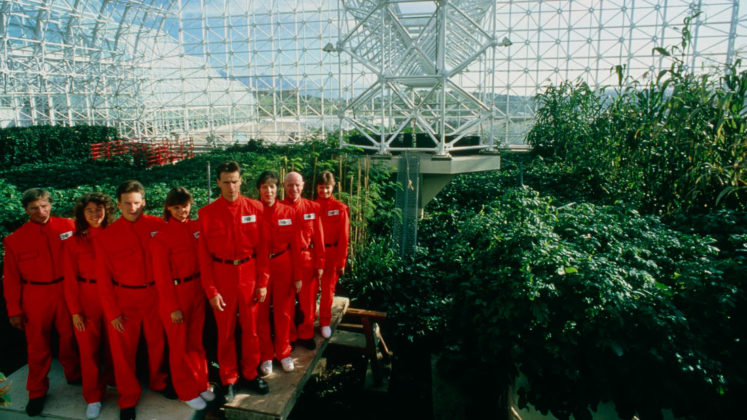When documentarian Matt Wolf was making Spaceship Earth, phrases such as “self-isolation” and “shelter in place” weren’t part of our everyday vocabulary.
But amid the pandemic chaos of 2020, it seems almost eerie to revisit the maligned 1991 social and scientific experiment known as Biosphere 2, which was perhaps the ultimate example of quarantine.
In other words, Wolf’s new film, which is being released via digital and “virtual cinema” outlets on Friday, now carries an urgent relevance.
“All of a sudden, we realized that our lives were transformed. It took me a while to make the explicit connection between my film and what was going on,” Wolf said by phone. “I think it could provide some insight or some fodder for some people to think about the experience of isolation.”
For those who don’t recall, the massive project — bankrolled by Fort Worth billionaire Ed Bass — involved eight volunteers known as “biospherians” who agreed to live in a giant enclosed ecosystem in the Arizona desert for two years, ostensibly without any outside access to food, water, air, or other essentials.
The film uses extensive archival footage and new interviews to tell the story of those inside, as well as offer fresh perspective on the creation of the experiment by a cult-like group of eccentric, free-spirited environmentalists — who called themselves “synergists” — as an attempt to create a self-sustaining biosphere that could combat global warming and serve as a prototype for human life in outer space.
“Because of its connection to climate change and reimagining our world, it felt very relevant — long before the notion of quarantine was part of our daily lives,” Wolf said. “I wanted to make something old feel new.”
Spaceship Earth also considers the legacy of Biosphere 2, which was shrouded in controversy at the time, in part because of questionable scientific practices and financial intentions. Wolf said he didn’t reach out to Bass because he wanted to keep the focus on the eight biospherians.
Some of them were reluctant to participate at first, since they felt burned by the media coverage 30 years ago and the widespread perception of their work as a failure.
“There was trepidation, but also a desire to get their story out there. It’s really been misunderstood,” Wolf said. “We had a byzantine story full of twists and turns, and the rare opportunity where all of those twists and turns are covered by archival footage.”
Wolf (Recorder: The Marion Stokes Project) said he felt a responsibility to tell the story objectively, and hopes it will carry some ecological lessons for all of us moving forward.
“The spectacle of Biosphere 2 made some people aware of the biosphere itself, and also presented a novel model and demonstration of sustainable living for Earth. They really saw the consequences of their actions inside. They couldn’t take anything for granted,” Wolf said. “In our current situation, after the quarantine subsides, people aren’t going to take a lot of things for granted. I hope they’ll feel a renewed responsibility for protecting our world, which is more fragile than we ever realized.”






